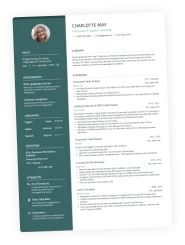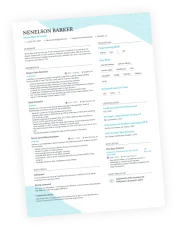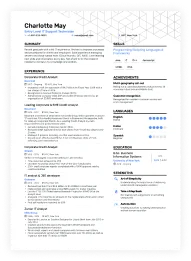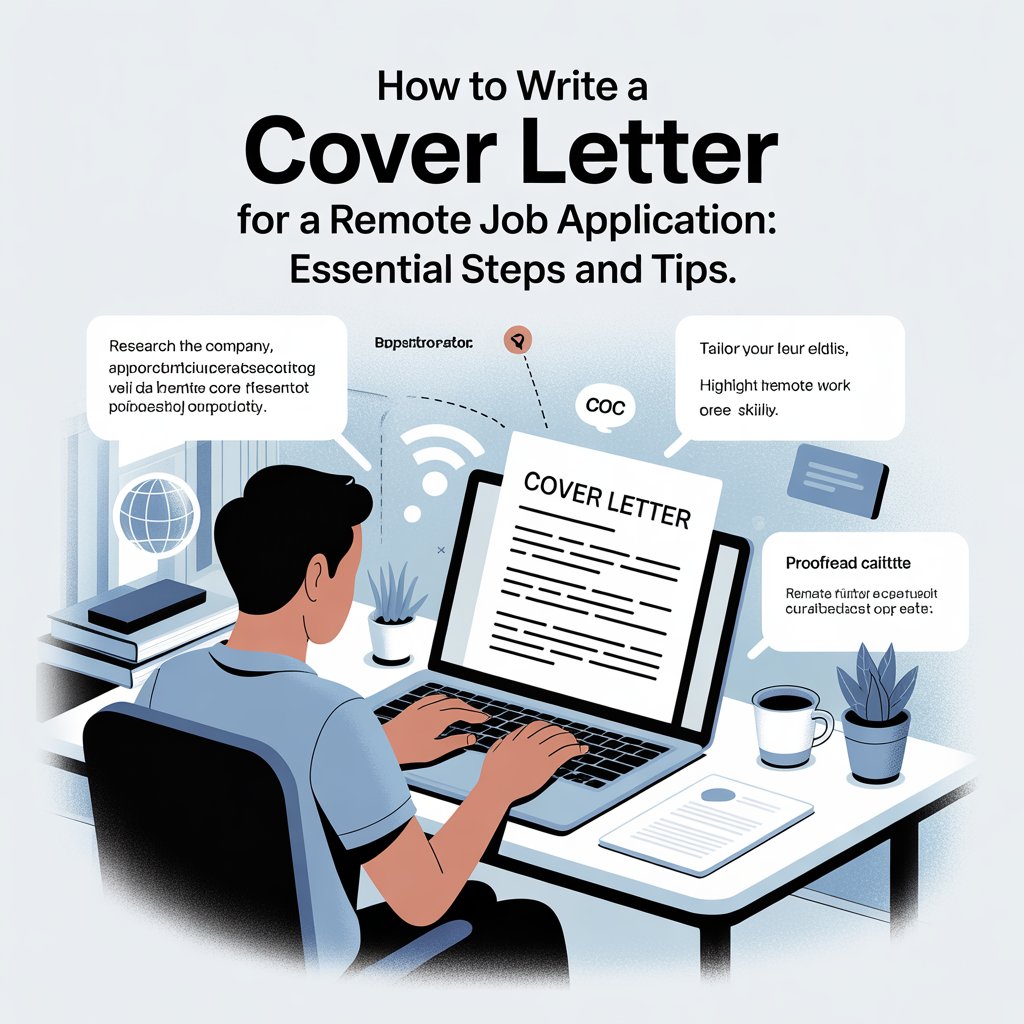Writing a compelling cover letter can be a challenge, but it’s a crucial part of the job application process. To help you stand out from the crowd, we’ve compiled a list of ten essential cover letter questions you should address. By answering these questions effectively, you can showcase your skills and enthusiasm, making a lasting impression on potential employers. Let’s dive into what you need to include in your cover letter to grab attention and land that interview.
Key Takeaways
- Always start by stating the position you’re applying for and how you found it.
- Do thorough research on the company to show your genuine interest.
- Clearly explain why this job excites you and how it aligns with your goals.
- Highlight your unique contributions that would benefit the company.
- Keep your letter concise and focused, avoiding unnecessary repetition.
1. Open With Position And Source
It’s important to immediately grab the reader’s attention. How do you do that? By clearly stating the position you’re applying for and where you saw the job posting. This shows you’re not sending a generic letter.
Starting strong sets the tone for the rest of your application. It tells the hiring manager you’re organized and pay attention to detail.
Think of it like this: they need to know you’re not just firing off resumes into the void. You’re targeting them, specifically. Mentioning the source also helps them track where their most effective recruitment efforts are. If you found the job on LinkedIn, say that. If a friend told you about it, name-drop (with permission, of course!). It adds a personal touch.
Here’s a simple breakdown:
- State the specific job title.
- Mention the company name.
- Indicate where you found the job posting (e.g., LinkedIn, company website, job board).
For example, you might start with something like: “I am writing to express my interest in the Marketing Manager position at Acme Corp, as advertised on company website.” See? Clear, concise, and to the point. This approach ensures the reader immediately understands the purpose of your letter and its relevance to a specific opening.
2. Research
Before you even think about writing, do your homework. I mean, really dig in. It’s not enough to just know what the company does; you need to understand their values, their recent projects, and their overall culture.
This part is non-negotiable. A generic cover letter screams ‘I didn’t bother to learn about you,’ and that’s a quick way to get your application tossed.
Think of it like this: you’re trying to show them you already fit in, and you can’t do that without knowing the landscape. Check out their website, their social media, and any news articles about them. See what their employees are saying on LinkedIn. The more you know, the better you can tailor your letter to show why you’re the perfect fit. It shows you put in the effort, and that speaks volumes.
Here’s a few things to look for:
- Recent company initiatives
- Company values and mission statement
- Recent news or press releases
- The hiring manager’s name and background
Understanding the company’s needs is key to writing a compelling cover letter.
3. Explain Why You Want The Position
Okay, so you’ve told them what you can do, but now it’s time to tell them why you want to do it for them. Don’t just say you need a job; dig deeper. What is it about this specific role and company that excites you? What makes you jump out of bed in the morning (besides the alarm, of course)?
Think about it this way: they want to know if you’re genuinely interested or just sending out resumes to anyone who’s hiring. Show them you’ve put some thought into it. Maybe their mission aligns with your values, or perhaps you’re eager to learn a specific skill they’re known for. Whatever it is, make it clear and convincing. This is your chance to show some passion and enthusiasm. A well-crafted cover letter is a great way to show your genuine interest in the position.
A good way to approach this is to connect your personal and professional goals with the company’s objectives. Show how your aspirations align with their vision, and explain how this role is a stepping stone in your career path. This demonstrates that you’re not just looking for a job, but a long-term opportunity for growth and contribution.
Here are some things to consider:
- Company Culture: Do you admire their values or work environment?
- Growth Opportunities: Does the role offer chances for learning and advancement?
- Impact: Can you make a meaningful contribution to their mission?
4. Describe Your Specific Contributions
Okay, so you’ve laid the groundwork, explained why you’re interested, and shown you’ve done your homework. Now comes the part where you really sell yourself. This isn’t just about listing skills; it’s about showing how you’ve used those skills to achieve tangible results. Think of it as providing evidence to back up your claims.
Focus on specific examples that demonstrate your impact. Don’t just say you’re a good project manager; describe a project you managed, the challenges you faced, and the positive outcomes you achieved. Quantify your accomplishments whenever possible – numbers speak volumes. Did you increase sales by a certain percentage? Did you reduce costs? Did you improve efficiency? These are the kinds of details that will make you stand out.
It’s easy to fall into the trap of simply restating your resume in paragraph form. Instead, use the cover letter to expand on a few key experiences that are particularly relevant to the job you’re applying for. Think of it as telling a story, with you as the hero who overcame challenges and achieved great things.
To make sure you’re on the right track, consider these points:
- What specific problems did you solve?
- What were the results of your actions?
- How did your contributions benefit your previous employer?
By answering these questions, you can craft a compelling narrative that showcases your value and demonstrates why you’re the perfect fit for the job. Remember, a compelling cover letter is your chance to shine and make a lasting impression.
5. Be Convincing
Okay, so you’ve laid out your skills and experience. Now it’s time to sell yourself. Don’t be shy about highlighting why you’re the best fit. Think of it as making a case, not just listing facts.
A convincing cover letter isn’t just about what you’ve done, but about how those experiences translate into value for the company. Show them you understand their needs and how you can meet them.
Here’s how to make your letter more persuasive:
- Quantify your achievements: Instead of saying “Improved efficiency,” say “Improved efficiency by 15% in six months.”
- Use action verbs: Start sentences with words like “Implemented,” “Managed,” or “Developed” to show initiative.
- Tailor to the job description: Directly address the requirements listed in the job posting. Show how your skills match their needs. Submitting a cover letter, even when optional, can enhance your application.
Remember, you’re not just filling a role; you’re bringing something unique to the table. Make that clear. A cover letter should be concise, ideally not exceeding one page.
6. Avoid Overusing ‘I’
It’s easy to fall into the trap of making your cover letter all about you, but remember, the employer wants to know what you can do for them. So, how do you strike the right balance?
One common mistake is starting too many sentences with “I.” It can make your letter sound self-centered, even if that’s not your intention. Instead, try to shift the focus to the company and the role.
Think about rephrasing sentences to highlight the company’s needs and how your skills align with those needs. This subtle shift can make a big difference in how your letter is received.
Here are a few ways to reduce the overuse of “I” and keep the focus where it belongs:
- Start with action verbs: Instead of “I believe I have the skills…”, try “My skills in project management…”
- Focus on accomplishments: Rather than “I was responsible for…”, use “Successfully managed…”
- Use “you” and “your”: Shift the perspective to the employer. For example, instead of “I am confident your company would benefit from my skills”, try “Your company could benefit from…” cover letter.
Minimizing the use of ‘I’ helps to create a more engaging and employer-focused narrative. It shows that you’ve taken the time to understand their needs and are genuinely interested in contributing to their success. It’s a small change that can make a big impact.
Think of it this way: your cover letter is a sales pitch, and you’re selling your skills and experience. But instead of just talking about yourself, you’re explaining how those skills can solve the employer’s problems. It’s about them, not just you. By carefully choosing your words and phrases, you can create a cover letter that’s both informative and persuasive. Remember to research the company to better tailor your letter.
7. End With A Strong Action Statement
So, you’ve poured your heart into this cover letter, making sure to highlight all your amazing skills and experiences. Don’t let it fizzle out at the end! You need to finish strong, leaving the hiring manager with a clear idea of what you want and what they should do next. Think of it as your final chance to make a lasting impression.
Your closing paragraph is where you seal the deal. It’s not enough to just say you’re interested; you need to show it with confidence and a clear call to action.
Here’s the thing: a weak ending can undo all the hard work you’ve put in. It can leave the impression that you’re not really that interested or that you lack confidence. But a strong ending? That can be the thing that pushes you over the edge and lands you that interview. Think of it as the final piece of the puzzle, the cherry on top, the mic drop moment of your cover letter. Make it count!
I once ended a cover letter with something like, “Hoping to hear from you soon.” It sounded so passive! A friend told me to be more assertive, so I started ending with something like, “I will follow up next week to discuss how my skills can benefit your team.” It made a huge difference!
Here’s what you should aim for in your closing:
- Express enthusiasm for the opportunity.
- Reiterate your key qualifications briefly.
- State your intention to follow up.
- Provide your contact information again (just in case!).
Don’t just fade away; make a statement. Let them know you’re serious and eager to take the next step. Make sure you are expressing gratitude and interest in the position, reinforcing the applicant’s fit for the role. Simple sign-offs can enhance the letter’s impact.
8. Proofread
Okay, you’ve poured your heart into crafting the perfect cover letter. Now what? Don’t just fire it off! You absolutely need to proofread. I know, it sounds obvious, but it’s amazing how many errors slip through. Trust me, a typo can be a deal-breaker. It shows a lack of attention to detail, and employers might think, “If they can’t get this right, what else will they mess up?”
Proofreading isn’t just about running spell check (though that’s a start). It’s about carefully reviewing every single word and sentence to make sure everything is clear, correct, and polished.
A flawless cover letter demonstrates professionalism and respect for the reader.
Here’s a little secret: I always find it helpful to print out my cover letter and read it on paper. Somehow, errors that I missed on the screen jump out at me when I’m holding a physical copy. It’s like my brain processes the information differently. Also, read it out loud. You’ll catch awkward phrasing and sentences that don’t flow well.
Proofreading is more than just catching typos; it’s about ensuring your message is clear, concise, and error-free. It’s the final polish that can make or break your application.
Here are some things to keep in mind:
- Check for spelling and grammar errors. Use tools, but don’t rely on them completely.
- Read the letter backward, sentence by sentence. This forces you to focus on each sentence individually.
- Ask a friend or family member to read it over. A fresh pair of eyes can catch mistakes you’ve overlooked.
Don’t underestimate the power of a well-proofread cover letter. It can be the difference between landing an interview and having your application tossed in the trash. Take the time to get it right. You can also review your letter with a career expert.
9. Keep It Short And To The Point
Okay, so you’ve poured your heart and soul into this cover letter. That’s great! But recruiters are busy people. They’re sifting through piles of applications, so brevity is key.
Ideal cover letters should be concise, aiming for around 3/4 of a page to a full page maximum. Anything longer, and you risk losing their attention. Think of it as an elevator pitch – you need to make a strong impression quickly.
Here’s the thing: no one wants to read a novel. They want the highlights, the stuff that makes you a great fit for the job. So, cut the fluff, get to the point, and make every sentence count. It’s about quality, not quantity. Make sure you research the organization to tailor your letter effectively.
A shorter, well-written cover letter demonstrates respect for the reader’s time and showcases your ability to communicate effectively. It shows you can distill information down to its most important elements, a skill valued in almost any role.
Here are some tips to keep it concise:
- Use bullet points to highlight key skills or achievements.
- Avoid repeating information already in your resume.
- Focus on the most relevant experiences and qualifications.
10. Cover Letters Should Expand On Experience, Not Repeat The Resume
Think of your cover letter as a chance to tell a story about your skills, not just list them. Your resume already does the listing. The cover letter is where you bring those bullet points to life.
Instead of simply restating what’s on your resume, use the cover letter to provide context, explain the impact of your achievements, and show how your past experiences directly relate to the job you’re applying for. It’s about adding depth and personality to your application.
Consider this:
- Your resume says you “managed a team.” Your cover letter explains how you improved team performance by 15% through implementing a new training program.
- Your resume lists “customer service skills.” Your cover letter details a specific instance where you resolved a complex customer issue, turning a complaint into a positive review.
- Your resume mentions “project management.” Your cover letter highlights a project where you successfully navigated unexpected challenges to deliver on time and under budget.
A good cover letter takes the achievements highlight professional achievements from your resume and turns them into compelling narratives that demonstrate your value to the employer. It’s about showing, not just telling.
Basically, use the cover letter to answer the “so what?” question that your resume might leave unanswered. Make the reader understand why your experience matters and how it will benefit their organization.
When writing a cover letter, it’s important to add more details about your experiences instead of just repeating what’s on your resume. This is your chance to tell a story about your skills and how they relate to the job you want. Make sure to highlight your achievements and explain how they make you a great fit for the position. Want to learn more about crafting the perfect cover letter? Visit our website for tips and tools to help you succeed!
Wrapping It Up
Writing a cover letter can feel like a chore, but it’s really your chance to shine. By answering the right questions and showcasing your unique skills, you can make a lasting impression. Remember to keep it concise, personalize it for each job, and highlight what makes you a great fit. Don’t forget to proofread! A polished letter shows you care. So, take these tips to heart, and don’t stress too much. With practice, you’ll get the hang of it and stand out in the job market.
Frequently Asked Questions
What should I include in the opening of my cover letter?
Start by mentioning the job you’re applying for and how you found out about it. This gives the reader important context right away.
How do I show that I’ve done research on the company?
You can mention specific details about the company’s work or mission that you learned from their website or other sources.
Why is it important to explain why I want the job?
This helps the employer understand your motivation and how the job fits into your career goals.
How can I highlight my contributions in the cover letter?
Share one or two examples of how your skills and experiences can help the company. Show them what you bring to the table.
What does it mean to be convincing in a cover letter?
Use positive language to show that you are the right fit for the job. Focus on your strengths and what makes you a great candidate.
Why should I avoid using ‘I’ too much?
Using ‘I’ too often can make your letter sound self-centered. Try to focus on the company and how you can help them.
What should I include in the closing of my cover letter?
End with a strong statement about how you will follow up and express your desire for an interview.
How important is proofreading my cover letter?
Very important! Proofreading helps catch mistakes and shows that you care about your application.












